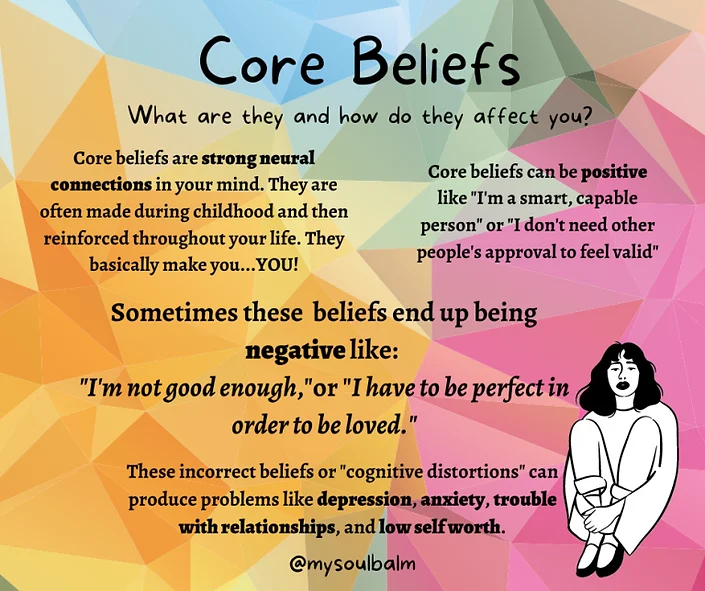What are core beliefs you might ask?
Core beliefs are the deepest, strongest beliefs you hold. Sometimes, you might not even realize them. Other times you may think you know what your core beliefs are, but then realize later that those beliefs were just the outer layers of a deeper drive inside. They are not so much thoughts as “I don’t believe in God” or “Abortion is wrong” which tend to be tied into our religious and political leanings. Instead, core beliefs are how you perceive yourself and the world. Your core beliefs are shaped by your environment, your personality, and your experiences.
For example, my sister and I are very close in age – only 17 months apart. We both lived in the same house and grew up in the same dysfunctional family, yet we came out of our childhood with vastly different views. Our dad was often deployed in the army, and eventually he chose to leave us for good. My sister’s response was to be angry, to lash out at other people, and to harbor hatred for our dad. These probably came from feelings of injustice, confusion, and hurt. I don’t know what her core beliefs are, but let’s say they are, “Parents should love their children and not leave them no matter what” or “I’m unlovable.” Her core beliefs are the lens through which she viewed her growing up experience.
I, on the other hand, felt overwhelming sadness, abandonment, and fear and these caused me to act anxious and depressed. I felt like I had no control over the situation and from this experience I developed core beliefs of “I’m not good enough” and “Every man will leave me.” Neither of our responses or emotions are wrong necessarily. Some are just healthier than others while some are more unbalanced. But through our experiences, my sister and I developed core beliefs about ourselves that then act as a lens through which we see everything else that happens in our lives.
Core beliefs can be positive and negative. We want to use the things we learn in cognitive behavioral therapy to change our negative, unhealthier core beliefs, which will then help our emotions and our behavior be more balanced and positive.
Can you think of some experiences you’ve had and how they shaped your core beliefs? Try listing one negative core belief you have and then think about three pieces of evidence that refute that core belief. It’s eye-opening!

